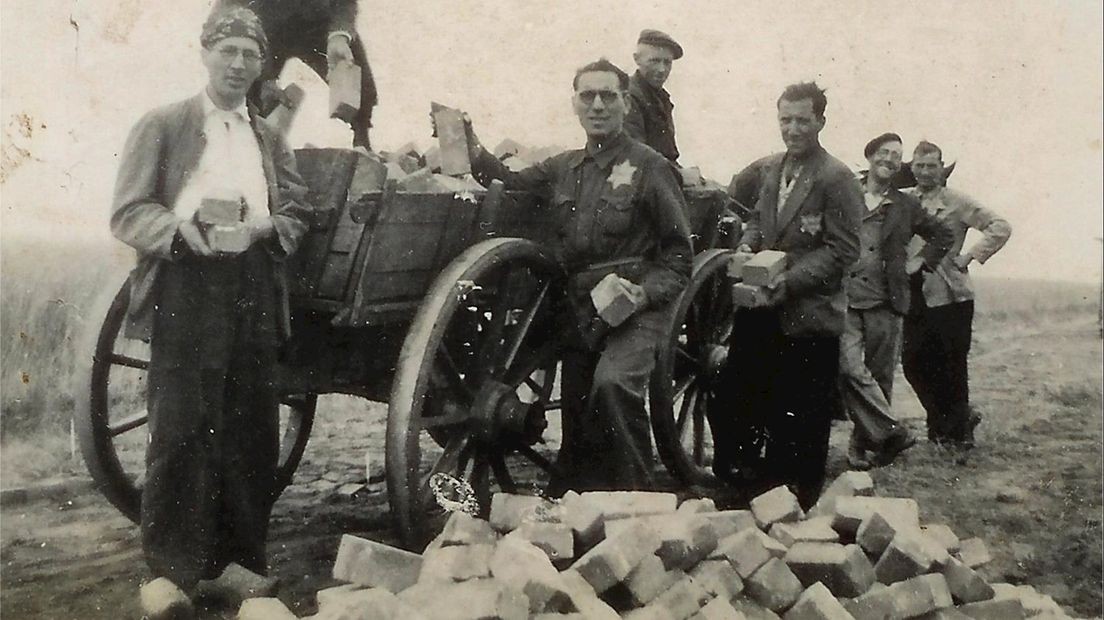Coenraad Rood was among the 170 Jewish men who were forced to work on roads around Staphorst and Rouveen during the war. Together with other forced laborers, he helped construct the Afschuttingsweg, a long road that older locals still refer to as the "Jews’ Road" (Jodenweg).
On October 3, 1942, all Jewish men at Camp Conrad were deported to Westerbork and from there to camps across Europe. Of the 170 Jewish prisoners, only a handful survived the Holocaust.
Surviving 11 camps
In total, Coenraad Rood survived eleven different labor and concentration camps in the Netherlands, Germany, and Poland. While the conditions at Camp Conrad were still better than those in the extermination camps in Germany and Poland, the dehumanization began there:
"In Staphorst, we were turned from decent citizens into forced laborers. Our lives were effectively over—but we didn’t realize that yet."
Never Truly Free
In April 1945, Coenraad Rood was liberated from a subcamp of Dachau. But the memory of the camps never left him:
"What still weighs on me is that I never truly got out of the camp. Even now. And it still costs me sleep."
Coenraad Rood, the last surviving Jewish forced laborer from Camp Conrad, passed away in 2011 at the age of 94, in his new homeland, the United States.
“We Remember You”
In 2019, the Afschuttingsweg in Rouveen received a new street sign with "Jodenweg" as a subtitle—finally honoring the Jewish forced laborers who had once been made to build it. The idea came from local primary school students, who didn’t want the Jews who had worked so hard to be forgotten by the village.
In 2023, a "stumbling threshold" was unveiled with the inscription "We remember you" (Wij herdenken jullie)—a memorial to the Jewish men who lived and worked at Camp Conrad during the war. Next to it, an information board was placed to tell visitors about the history of the labor camp.
